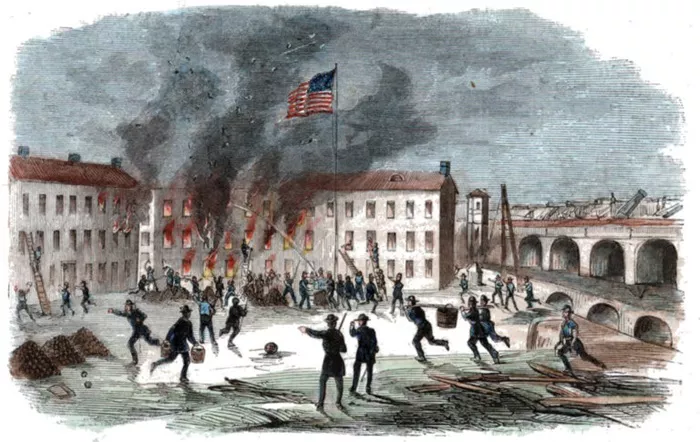Canada has a long and complex history. Many important events have taken place on February 27 throughout the years. These events have influenced politics, culture, and society. This article explores key moments in Canadian history that happened on this date.
What Happened on February 27 in Canadian History?
1. The Signing of the Jay Treaty (1796)
On February 27, 1796, the Jay Treaty was ratified. This treaty was an agreement between Britain and the United States. It settled border disputes and trade issues after the American Revolutionary War. The treaty allowed Indigenous peoples to cross the Canada-U.S. border freely. This right was later reaffirmed in Canadian law. The Jay Treaty shaped early Canada-U.S. relations.
2. The Birth of Sir Charles Hibbert Tupper (1855)
Sir Charles Hibbert Tupper was born on February 27, 1855. He was the son of Sir Charles Tupper, one of Canada’s Fathers of Confederation. Tupper became a lawyer and a politician. He served as Minister of Justice and Minister of Marine and Fisheries. He played an important role in Canada’s early development. His political career lasted for decades.
3. The Establishment of the Yukon Territorial Council (1898)
On February 27, 1898, the Yukon Territorial Council was established. This council governed Yukon during the Klondike Gold Rush. Thousands of prospectors had come to Yukon in search of gold. The territorial council helped create laws and maintain order. It was a major step in the governance of Canada’s northern territories.
4. The Halifax Explosion Investigation (1918)
On February 27, 1918, an inquiry into the Halifax Explosion released its final report. The explosion had happened on December 6, 1917. A French munitions ship, the Mont-Blanc, collided with another ship. The explosion devastated Halifax, killing nearly 2,000 people. The investigation found that the Mont-Blanc was at fault. This led to changes in maritime safety regulations.
5. The Discovery of Oil in Alberta (1947)
The Alberta oil industry changed forever in 1947. The first major oil discovery happened in Leduc, Alberta, on February 13. By February 27, the oil boom was in full swing. This discovery led to rapid economic growth. Alberta became a global player in the energy sector. It also changed Canada’s economy and trade policies.
6. The Flag Controversy in Quebec (1956)
On February 27, 1956, a political controversy erupted in Quebec. Premier Maurice Duplessis ordered the removal of the Canadian flag from the Quebec legislature. He argued that the Union Jack and the Quebec flag were enough. This event was part of Quebec’s growing nationalist movement. It highlighted tensions between Quebec and the federal government.
7. The Official Languages Act Debate (1969)
February 27, 1969, was a key moment in Canada’s language debate. Prime Minister Pierre Trudeau’s government was working on the Official Languages Act. This law made English and French Canada’s official languages. The debate on this day focused on bilingualism in federal institutions. The act became law later that year. It shaped Canada’s identity as a bilingual country.
8. The Murder of Pierre Laporte Remembered (1971)
On February 27, 1971, Canadians reflected on the October Crisis. Pierre Laporte, a Quebec minister, had been kidnapped and murdered in 1970. The FLQ, a separatist group, was responsible. The crisis led to the use of the War Measures Act. It was a controversial moment in Canadian history. On this date, people debated civil rights and government power.
9. The Establishment of Nunavut’s Capital (1995)
On February 27, 1995, Iqaluit was chosen as the capital of Nunavut. Nunavut was created in 1999 as a separate territory for Inuit people. The decision to make Iqaluit the capital was historic. It was a step toward Inuit self-governance. Iqaluit became a center for Arctic policy and Indigenous rights.
10. The Apology for Residential Schools (2010)
On February 27, 2010, Canada continued its reconciliation efforts. The government issued another statement on residential schools. These schools had forced Indigenous children to assimilate. Many suffered abuse and neglect. The apology was part of a broader effort to heal historical wounds. It acknowledged Canada’s colonial past.
Conclusion
February 27 has been an important date in Canadian history. It has seen political decisions, cultural debates, and economic changes. These events have shaped the nation’s identity. Understanding these moments helps us appreciate Canada’s rich history. Each year, this date serves as a reminder of the country’s past and its progress.
Related Topics:

